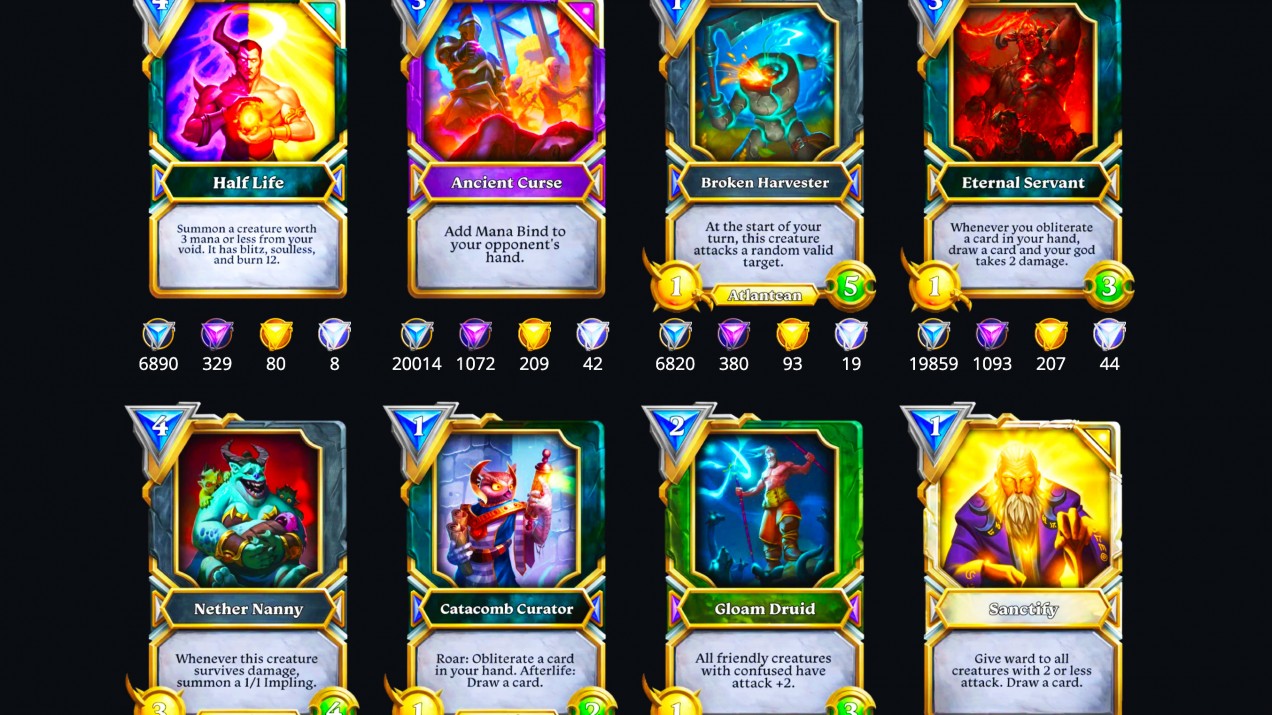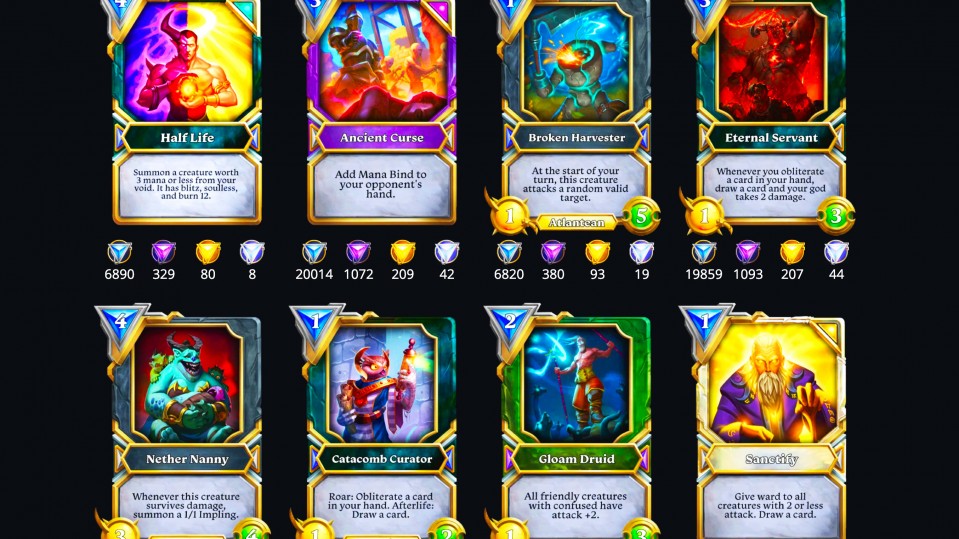

Blockchain / Ethereum
This blockchain-based card game shows us the future of ownership
Gods Unchained is riding a wave of hype because of the way it lets players own digital cards. But the core concept could reach beyond games.

Gods Unchained hasn’t even fully launched, but the collectible card game already has more hype around it than any blockchain game ever. This week a beta version opened to the public after months of private testing. But Fuel Games, the startup developing the game, says it has already sold millions of game cards and generated $4 million in revenue thanks to pre-sales.
So why the excitement over yet another collectible card game (of which there are many)? To understand why people think this particular game could be such a big deal, you have to wrap your mind around something called “non-fungible tokens,” commonly called NFTs.
Though the technical details behind them are complicated, to users NFTs are pretty simple: they are collectibles. Think the digital version of a rare or one-of-a-kind baseball card or Beanie Baby. How do you know it’s real? Thanks to a blockchain network, which can cryptographically verify its authenticity without the need for any central authority. Many people believe the concept is powerful enough to finally inspire the masses to use blockchains. Or at least play games with them.
Competitive collectible card games have been around for decades, in both physical and digital forms. Gods Unchained is similar to the popular physical card game Magic: The Gathering, which debuted in 1993. Players of Gods Unchained must assemble their own personal decks by collecting cards that offer advantages in the game, which plays out like a battle between the characters on the cards. Rarer cards are more valuable.
Blockchain technology, which is notoriously slow and inefficient at processing transactions, will only be used to keep track of the cards and who owns them. The actual game will be played “off-chain.”
Around 20 million people play Magic, and a huge secondary market has formed for players to buy and sell valuable cards. A number of online card games have emerged with a similar style of play, but Gods Unchained—thanks to NFTs and the Ethereum blockchain—is unique in that it will give players true ownership of the cards. It’s a bit like collecting baseball cards. Players can store them in their own digital wallets and, if they want to, sell or trade them to others. Once the game is fully launched, Fuel Games won’t have any power to modify the cards’ attributes after they are released.
The concept of an NFT began as a special kind of token that works on the Ethereum blockchain. It was first popularized in 2017 by Axiom Zen, the startup behind CryptoKitties, a relatively popular Ethereum game that lets users collect and breed one-of-a-kind digital cats.
Since then, a number of similar crypto-collectible games have come out, and third-party NFT-focused marketplaces have arisen that let people buy and sell their CryptoKitties and similar assets. Other blockchains have adopted their own versions of the NFT.
Some people even think NFTs have implications that will reach beyond gaming—for instance, to represent physical assets like art, or to act as digital proof that you own some other real property.
In the meantime, Gods Unchained (and games like it) will fundamentally change the relationship between game makers and game players, predicts Fuel Games cofounder Robbie Ferguson.
The old model, he says, is to “find a way to extract maximum rent from your users while giving them just enough value so that they stay.” The latest version of this is the free-to-play game with in-app purchases that can make the gaming experience better. Using NFTs, game makers can create real digital assets that players can earn and maybe even use to profit. “Blockchain allows players to monetize their time,” says Ferguson.